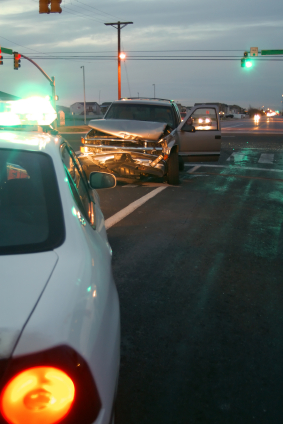
A driver who is ticketed after a motor vehicle accident is confronted with two important issues:
- How will the ticket affect the person’s driver’s license?
- Will the ticket have consequences for that person’s insurance?
The issue of whether the traffic ticket will result in a suspended or revoked license is addressed in other articles in this site. This article will concentrate on the ramifications of a traffic ticket on insurance.
The key issue for insurance is who was at fault. Every motorist on the road in Illinois must operate his or her vehicle with ordinary care. Failure to drive with ordinary care is negligence, and a person who is negligent is at fault. Generally speaking, a person who is at fault must compensate the victim for property damage and personal injury.
If a driver has an insurance policy, the insurance company will usually pay for damages caused by the negligent driver. The person who was at fault is personally liable, but the purpose of paying insurance premiums is so that the insurance company will pay out up to the policy limits in cases of an accident.
If the driver did not have insurance coverage for the vehicle on the date of the accident, then the driver could be sued for damages (e.g., auto repair costs, medical bills, and compensation for pain and suffering) and lose everything. His or her property could be seized (such as a residence or vehicle) and wages could be garnished to satisfy the debt.
The way that traffic court factors into fault is that a ticket for a moving violation is like an accusation of failing to operate a motor vehicle with ordinary care. The ticket is a charge of negligence in that the driver violated some traffic regulation.
Typically the police officer will write a ticket for a moving violation such as failure to reduce speed to avoid an accident, disregarding an official traffic control device, failure to yield, following too close, etc. Usually any of these tickets will amount to fault (or negligence) for purposes of insurance, and the guilty driver will be liable to pay for property damage and personal injury.
A plea of guilty in traffic court can be used against the motorist in a lawsuit for property damage or personal injury. The guilty plea is an admission of fault.
But if the traffic case goes to trial and the judge finds the defendant guilty, that cannot be used against the motorist in a lawsuit. In this case, the motorist never admitted to being at fault, and the issue would have to be proven in lawsuit all over again.
Insurance companies generally do not provide attorneys for traffic court, but perhaps they should, if for no other reason than to make sure their insureds do not admit to being at fault.

